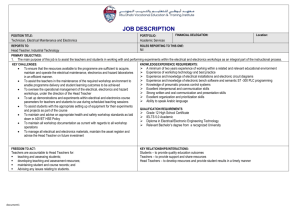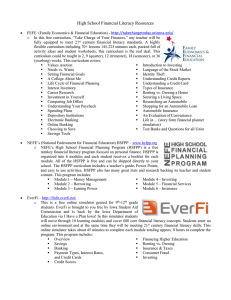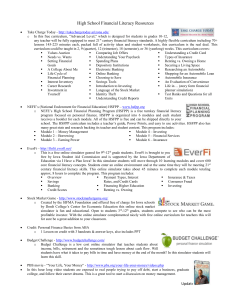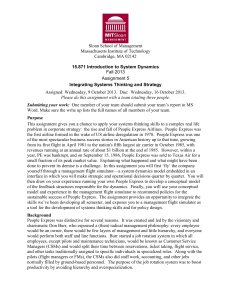Modern Electronics: Teaching Economics to High School Students
advertisement
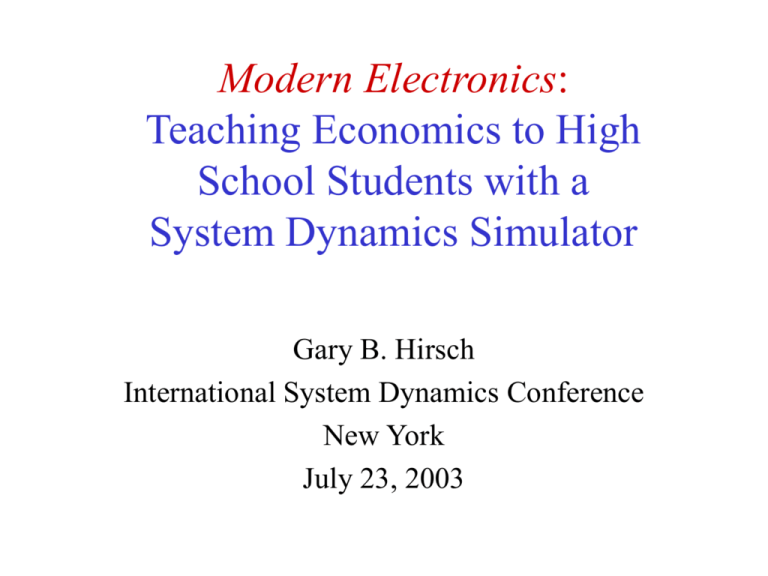
Modern Electronics: Teaching Economics to High School Students with a System Dynamics Simulator Gary B. Hirsch International System Dynamics Conference New York July 23, 2003 Goals of the Modern Electronics Simulator • Make Economics Less Abstract by Relating It to a Familiar Setting • Introduce ST/SD Concepts, Especially Interrelationships Among Parts of a System • Use Simulation as an Opportunity for Experiential Learning--Do Experiments, Construct Understanding • Expand on Simple Economic Concepts – Decisions Are Multifaceted – Selling is a Complex Process – Availability, Selection Can Be as Important as Price Design Principles • Provide Overview to See Whole System at a Glance • Create Ability to Drill Down, Get Into More Detail in Specific Areas • Closely Relate Structure and Behavior • Provide Information in Multiple Formats to Support Different Learning Styles • Support Iterative Learning by Comparing Results Modern Electronics: Business Basics • Consumer Electronics • Average Price = $100 • Medium Range of Merchandise (Variety) • 3 Staff • Start with $200,000 in the Bank and $50,000 in Inventory Future Development • Testing with Students, Evaluation, Modification • Better graphics, animation, voice-overs, multimedia through links with such packages as Flash • Curriculum for using simulator to teach SD (including model decomposition) • Application of Vensim’s Synthesim capability • Other applications to economics – – – – Manufacturing firm Market simulations Simple national economic models Economic issues such as poverty and unemployment





